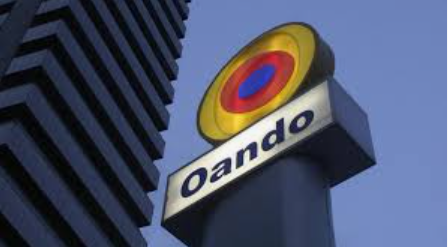Oando Plc, a prominent Indigenous oil company, has reported a significant 44% decline in its half-year profit for 2024, with earnings dropping to N62.6 billion from N112.45 billion in the same period of the prior year. This downturn was detailed in the company’s H1 unaudited results shared with the Nigerian Exchange Limited, wherein the firm attributed the decline in profit after tax primarily to increased administrative expenses and net finance costs tied to unfavorable exchange rate fluctuations. Despite this profit decline, Oando recorded a 51% increase in revenue, amounting to N2 trillion, bolstered by advantageous exchange rate translations and heightened crude oil production volumes. However, these gains were somewhat offset by diminished trading volumes, as well as reductions in natural gas and Natural Gas Liquids (NGL) volumes, coupled with lower favourable sale prices for these products.
Wale Tinubu, Oando’s Group Chief Executive, emphasized that the company’s ability to maintain a profit amidst such adversity—primarily attributed to sabotage and theft in the Niger Delta region—illustrates the resilience of their operations. The production disruptions from these challenges led to several shut-ins, negatively affecting production levels. Tinubu noted that since taking on operatorship, Oando has initiated various production-enhancing measures that have already yielded positive results, including a notable 36% increase in production within just 30 days following recent acquisitions. This commitment to navigating and overcoming these obstacles reflects Oando’s long-term vision of achieving sustainable growth and delivering value to its stakeholders.
In a broader view, Oando’s profitability challenges were mirrored in their annual financial results, where they posted a profit after tax of N60.28 billion for the year 2023, albeit with persistent concerns from auditors regarding the company’s overall financial health and its status as a going concern. The independent auditor’s report raised alarming indicators, including the company’s negative asset position and indications of a funding shortfall, coupled with substantial comprehensive losses. Specifically, Oando’s revenue for 2023 increased by 43% to N2.9 trillion from N1.9 trillion in the previous year, largely driven by heightened trading activity and increases in oil and gas production. However, these were balanced against lower production volumes of NGLs and the realization of lower prices.
Further scrutinizing the company’s finances, the auditor’s report highlighted a comprehensive loss of N216.2 billion for the year ended December 31, 2023, compared to a loss of N41.7 billion in 2022. Oando’s current liabilities surpassed its current assets, raising serious concerns about its liquidity and ability to meet short-term obligations. In light of these challenges, the audit report emphasized that reversing the trend of losses will hinge on the successful execution of its refinancing plans aimed at addressing a projected funding gap of N3 trillion for the group.
While the management has presented strategies for marginally bridging this funding gap through equity raises in coordination with prospective investors, uncertainty blurs the likelihood of achieving these objectives in the near term. The auditors characterized these ongoing conditions as significant uncertainties that could jeopardize the group’s operational viability as a going concern. These uncertainties also indicate that Oando may face challenges in recognizing its assets and fulfilling its liabilities under standard business operations.
The auditor also flagged notable transactions involving Oando, including a controversial $20 million loan agreement linked to a subsidiary indirectly tied to the group’s CEO and Deputy CEO for corporate funding, as well as a forex contract with Argentil Asset Management. Additionally, the report disclosed concerns surrounding the company’s purchase of petroleum products from Russia, which the auditors flagged due to relevant sanctions from the US and UK. The oil was sold to Nigeria National Petroleum Corporation (NNPC), igniting debates over compliance with international laws, although management maintained that Oando Trading DMCC, a subsidiary, is not subject to these sanctions based on legal opinions received.
In summary, as Oando Plc navigates a tumultuous operational landscape characterized by declining profits, substantial losses, and lingering concerns regarding its overall financial viability, the management team’s initiatives aiming toward recovery reflect a commitment to build a sustainable future. However, clarity around the successful achievement of their refinancing strategies and the potential impacts of ongoing legal and regulatory challenges remains to be seen, and will be critical in determining the company’s trajectory in the competitive oil and gas sector in Nigeria.














